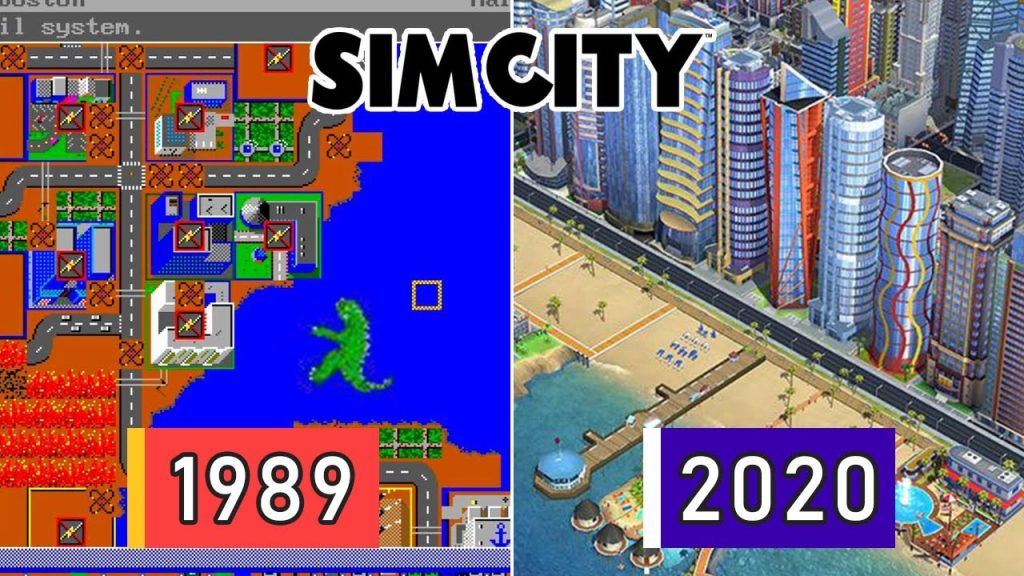In the vast universe of video games, few luminaries shine as brightly as Will Wright, the virtuoso creator behind the transformative SimCity franchise. A visionary game designer and a pioneer in the simulation genre, Wright has left an indelible mark on the gaming landscape. In this exploration, we journey through the realms of SimCity, delving into the creative genius of Will Wright—examining the genesis, evolution, and enduring impact of this groundbreaking game.
A Visionary’s Genesis: Will Wright’s Odyssey into the Pixels
Will Wright’s journey into the world of gaming is a tale of passion, curiosity, and an insatiable desire to explore the uncharted territories of digital creation. In his youth, Wright, a computer enthusiast with an affinity for complex systems, embarked on a quest to merge his fascination with simulation games and urban planning. The result was a visionary concept that would evolve into SimCity, a game that transcended entertainment, becoming a digital canvas for city builders and thinkers alike.
SimCity’s Emergence: Bridging Realism and Pixelated Creativity
In the late 1980s, SimCity emerged as a revolutionary gaming experience. Wright’s brainchild not only entertained but provided an immersive simulation of the intricacies of urban planning. It was a bold departure from the prevailing gaming norms, offering an open-ended environment where players could shape and govern their own virtual cities.
SimCity’s gameplay dynamics were a testament to Wright’s commitment to realism. SimCity replicated real urban challenges—zoning, infrastructure, and budgeting formed the virtual city’s foundation. Its dynamic simulation introduced unpredictability, weaving challenges like disasters and economic downturns for players to navigate.
Maxis and SimCity: A Symbiotic Evolution
Will Wright’s vision found a home at Maxis, a game publisher that recognized the transformative potential of SimCity. This collaboration birthed not just a game but a pioneering force in the simulation game genre. SimCity’s success positioned Maxis as a trailblazer, influencing the trajectory of simulation and strategy games for decades to come.
SimCity’s impact reached beyond entertainment, evolving into an educational tool for institutions teaching urban planning and systems thinking. Wright’s vision of a dynamic, educational experience became a reality, transforming learning through interactive simulation.
SimCity’s Evolution: Beyond Pixels to 3D Realms
As technology advanced, SimCity evolved. Successive iterations—SimCity 2000, SimCity 3000, and SimCity 4—introduced groundbreaking features. The pixelated landscapes gave way to three-dimensional realms, enriching the gaming experience for city builders and simulation enthusiasts. Wright’s commitment to innovation remained unwavering, with each release pushing the boundaries of what was possible in the gaming world.

New features, from intricate transportation networks to comprehensive economic models, elevated SimCity from a game to a comprehensive simulation platform. The digital cities created by players became intricate microcosms, reflecting the complexities of urban life and governance. SimCity was no longer just a game—it was a virtual playground for creativity and exploration.
The Sims: Will Wright’s Societal Canvas
While SimCity continued to captivate audiences, Will Wright’s ingenuity extended beyond city simulation. In the early 2000s, Will Wright introduced The Sims—a life simulation game that lets players create and control virtual lives. It became a cultural phenomenon, highlighting Wright’s talent for translating human experiences into engaging gameplay.
With The Sims, Wright pioneered a new genre of simulation games—one that focused on the minutiae of everyday life. The game’s success solidified Wright’s status as a visionary game designer, capable of creating immersive experiences that resonated with a broad audience.
Spore: Will Wright’s Galactic Odyssey
In 2008, Will Wright set his sights on the cosmos with the release of Spore. This ambitious game allowed players to guide a species from its microscopic beginnings through evolution, civilization-building, and space exploration. Spore showcased Wright’s fascination with the grand scale of life and the intricate interplay of systems.
While Spore received mixed reviews, it underscored Wright’s willingness to push the boundaries of gaming, exploring new frontiers and challenging conventional expectations. Even in its complexities, Spore reflected Wright’s enduring commitment to creating games that were not just entertaining but intellectually stimulating.
Will Wright’s Impact on Game Design: A Mosaic of Creativity
Will Wright’s contribution to the gaming world is a mosaic of creativity—a testament to his ability to merge education, entertainment, and innovation. The concepts introduced in SimCity—player-driven narratives, emergent gameplay, and dynamic simulations—have become staples in modern game design.
Wright’s influence extends beyond the success of individual games. His game design approach, marked by understanding complex systems, player agency, and educational value, inspires a new wave of developers. SimCity’s lasting popularity and the inspiration it sparked in countless simulation and strategy games showcase his profound influence.
Will Wright’s Post-SimCity Ventures: Staying Ahead of the Curve
After leaving Maxis, Will Wright continued to explore new frontiers. Will Wright’s innovation shines through co-founding HiveMind, a game development company, and his involvement in the Stupid Fun Club, an entertainment think tank.
Wright’s ventures post-SimCity reflect a broader interest in the intersection of technology, entertainment, and user engagement. His foresight and adaptability in the face of evolving technologies have firmly established him as a forward-thinking figure in gaming and tech.
Conclusion: Will Wright’s Pixelated Odyssey
Will Wright’s legacy is a pixelated odyssey that continues to inspire and shape the gaming industry. From SimCity’s pixels to Spore’s galaxies, Wright’s journey testifies to limitless possibilities in video games.
As the gaming industry continues to evolve, Will Wright’s legacy endures. His ability to weave together education, entertainment, and innovation has left an indelible mark on game design. SimCity’s pixelated glow guides future game creators, reminding them that gaming’s true magic lies in the genius behind the pixels—Will Wright.





















